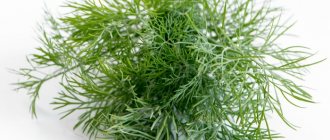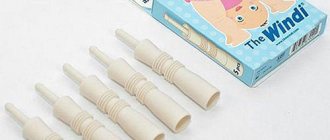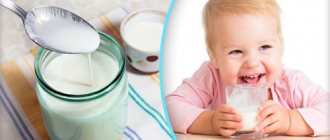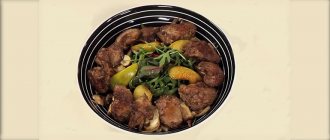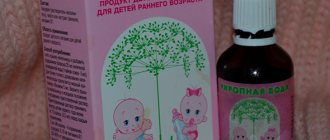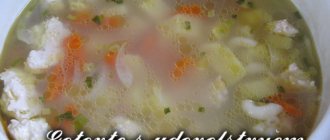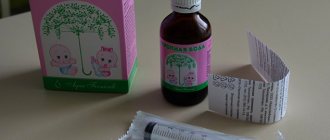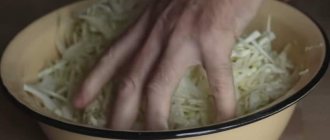Dill is a spicy herb that has been part of the diet since ancient times and is used in hot and cold dishes and winter preparations. In addition to the benefits that the plant brings to the body due to its high content of vitamins and microelements, the pharmacological properties of dill should also be noted - they make the herb popular during breastfeeding.
Despite the available selection of pharmaceutical products to improve lactation, including herbal teas and vitamin complexes, homemade dill water is used because its effectiveness has been proven through the experience of many generations.
Indications for use
Pediatricians recommend that women take dill water during lactation.
This drink has the following properties:
- increased lactation: milk production becomes more intense, its composition changes;
- elimination of unpleasant conditions that occur during breastfeeding;
- improvement of the baby’s condition (relieves colic, normalizes digestion, eliminates bloating, constipation, and other problems arising from the gastrointestinal tract);
- relieving spasms.
Dill during breastfeeding: how to drink dill water for a nursing mother for lactation
A mother's feeding of an infant should be very careful. A young mother will have to be patient and limit herself to most foods for some time, because her diet can cause allergies or intestinal colic in her child. So is it possible to eat dill while breastfeeding?
It is impossible to predict all the consequences of the food consumed. And colic often occurs in a baby not only because of the mother’s poor diet. If you suddenly experience pain in your baby’s tummy, the first useful remedy is dill water for the baby’s mother.
Useful properties of dill
First of all, dill is useful for breastfeeding. It reduces the upset of a small tummy and helps normalize the intestines. In addition, it has a calming effect on the baby.
So, a few more useful actions:
- normalization of blood circulation;
- improvement of cardiac function;
- sputum comes out;
- the body recovers after damage.
Dill water for lactation is also useful. The substances contained in this plant help increase the amount of milk.
The positive effects of dill do not end there; it also:
- eliminates headaches;
- eliminates heaviness in the stomach;
- helps in the fight against insomnia;
- helps with inflammation (for example, cystitis).
Despite the unconditional benefits of dill, there are some contraindications. Firstly, dill water is contraindicated for a nursing mother if she suffers from low blood pressure, since dill contains a substance called anetine, which dilates blood vessels.
Instead of dill, it is better to use:
Secondly, dill water should not be given to mothers who are breastfeeding if she may have food allergies. Thirdly, if a woman suffers from stones in the bile ducts. If there are no these contraindications for the mother, then she can start consuming dill during breastfeeding already on the 10th day after the birth of the child.
Dill water
During lactation, dill water is primarily used to eliminate colic in babies. You can buy it at the pharmacy or make it yourself at home.
Please note that pharmacies sell dill water for mothers during breastfeeding, which is made from medicinal dill (fennel).
What it is
Medical dill for a nursing mother is also called fennel. Both in appearance and in its properties it is similar to fragrant dill. But it differs in taste and smell. It is much more effective than fragrant dill, which is why medicines are made from it.
Benefits during lactation
You shouldn’t think that you drank dill water or ate a bunch of the plant and your milk immediately increased. Dill has this beneficial property to a small extent. There are pharmaceutical products that are more effective.
It is important to understand how to drink dill water for a nursing mother. If for a long time, then this will be a big plus for a nursing mother.
It should also be taken into account that it works not only as a lactation enhancing agent, but also as a sedative.
I would like to note that dill water, tea and other drinks are mainly prepared from dill seeds, and not from the weed itself, as many might assume. In this case, the seeds must be crushed in order to obtain the maximum useful substances from them.
For babies from colic
Colic in a child is a normal physiological stage that every baby goes through on the way to developing the gastrointestinal tract. And they can occur even if the mother follows a very strict diet. Dill seeds during breastfeeding will effectively relieve the baby's abdominal pain.
Many people are interested in whether a nursing mother can drink dill water. To prevent colic in a baby, a mother can wait 10 days after giving birth and then include dill in her daily diet.
She can eat it fresh or cooked through heat treatment. It goes well with vegetables and meat, so it’s easy to include in any dish.
But doctors warn that you should not use dill extract while breastfeeding!
How to cook at home
In medicinal dill waters you can often find fennel essential oil. You can also make it at home: just take fennel seeds, pour boiling water over it and let it brew for a while.
If the baby is less than a month old, then it is enough for him to drop 15 drops of infusion on his tongue. After a month, the number of drops increases to 25. Doctors also recommend stroking the tummy and applying warm heating pads.
It is also good to combine fennel with other herbs that are beneficial for breastfeeding. These are, for example: oregano, cumin, lemon balm, chamomile, anise, nettle. How should nursing mothers take dill water? It is better to use one of the cooking recipes below. It is important to follow the dosage of dill water for a nursing mother.
Recipes to improve lactation
Dill seeds are very important for lactation. The effect is visible especially if a woman’s diet includes drinking plenty of water. There are many recipes for properly preparing dill drinks; here are a few examples.
Dill tea
It is very easy to prepare dill tea for a nursing mother.
To do this, you only need dill seeds and water:
- Take 1 spoon of crushed dill seeds.
- Pour a glass of boiling water over them.
- Cover with something and leave until it cools down.
- Drink in small portions throughout the day.
Cocktail with dill
It is prepared very simply:
- Take one tablespoon of each of the ingredients: dill seeds, fenugreek, fennel, anise, and chop them.
- Brew boiling water at the rate of 1 glass of water per 1 spoon of mixture.
- Leave for about 30 minutes.
- Drink 15 minutes before feeding the baby in the morning and evening.
Dill seed decoction
It’s also easy to prepare a decoction yourself:
- The proportions are the same - 1 tablespoon and a glass of boiling water.
- Dill is cooked for 10 minutes.
- Then it cools down.
- Drink 6 times a day before feeding your child. At one time - 1 tablespoon.
Beneficial features
Pharmaceutical dill (fennel) and ordinary greens contain vitamins and minerals:
- iron;
- zinc;
- potassium;
- calcium;
- phosphorus;
- carotene;
- folic acid;
- vitamins E, C, B.
The following beneficial properties of the product are highlighted:
- Hypoallergenic. Helps get rid of rashes, itching, eliminates the inflammatory process, promotes rapid healing of wounds.
- Expectorant. When you cough, the airways are cleared and mucus is expelled.
- Diuretic. Used to prevent the development of cystitis or treat it.
- Cleansing. Contains a large amount of fiber, which helps cleanse the intestines and eliminate bloating.
- Immunostimulating. Activates the body's protective functions, helps treat respiratory diseases, and recover after childbirth.
- Eliminate appetite problems. Stimulates the production of gastric juice.
- Normalizes metabolic processes.
- Lowers blood pressure.
- Prevents the development of cardiovascular pathologies.
This drink helps improve lactation, so breastfeeding is a reason to drink it.
What kind of water is this?
Pharmaceutical dill water is an extract of fennel seeds (pharmacy dill) or essential oil of the plant. The solution is sold in glass bottles (volume from 15 to 100 ml). Contains seed extract and distilled water. The main purpose of the drug is to normalize the functioning of the digestive tract.
You can also buy herbal tea from seeds ground into powder at the pharmacy. The package includes 10 or 30 filter bags.
You can prepare dill water yourself. Fennel or dill seeds are used.
Breastfeeding women are recommended not only to enrich their diet with fresh dill, but also to take dill water. The product brings great benefits to the mother's body:
- supports lactation, stimulates breast milk production;
- removes harmful accumulations from the vascular bed and intestinal tract;
- has a mild laxative and diuretic effect, prevents constipation and swelling;
- promotes weight loss in the postpartum period;
- restores the cyclicity of menstruation;
- relieves excess gas formation and spasmodic pain in the intestines.
Features of choosing ingredients
Pharmacy dill water is made from fennel essential oil. You can prepare a healing decoction at home from the seeds of this plant or use regular dill.
It is allowed to use dill, but the effect will be less pronounced.
It is recommended to purchase raw materials for the drink at a pharmacy or take it from your garden . Both green and dried dill seeds can be used.
Is it permissible for a nursing mother to eat dill?
Now, knowing about the benefits of dill, many young mothers may have a question: can a nursing mother take dill water? Of course yes! In addition, dill greens, both fresh and processed, are very useful. Fresh dill greens can be eaten during breastfeeding within 10 days after the baby is born.
For a nursing mother, in order not to stop breastfeeding, an important condition is maintaining lactation. Dill water copes with this task perfectly. You just need to know how to cook it correctly.
Recipes for making water that stimulates lactation
The recipe for lactation is quite simple: 1 tbsp. pour a glass of boiling water over dill seeds, stir, cover with a lid. Brew dill seeds for 15 minutes. After this time, the liquid is filtered through cheesecloth.
You need to drink the prepared broth in small sips about half an hour before feeding. Drink 1 glass of decoction per day, dividing the portion into 2 doses.
Recipes for lactation
Knowing how to prepare dill water, you can make a fresh decoction every day. There are several recipes for preparing this remedy to increase lactation.
Method 1.
Pour a heaped tablespoon of dry dill seeds into a glass container, then pour a glass of boiling water, stir, and cover with a lid. In 15 minutes the dill water will be ready. It must be filtered through cheesecloth or a fine strainer.
Method 2.
Instead of dry dill, finely chopped fresh herbs are used. A heaping tablespoon of the prepared raw material is poured with half a liter of just boiled water and allowed to brew for 15-20 minutes, filtered using gauze or a strainer.
To prepare an effective remedy that will help improve lactation during breastfeeding, you can use fennel oil purchased at the pharmacy. This is a concentrated composition, so it should be used carefully: add one or two drops of oil per liter of warm water. If you drink water that is overly saturated with essential oil, you can harm your body.
In the summer, instead of dill water, it is recommended to simply consume fresh dill if it is grown in an environmentally friendly place (far from highways, industrial enterprises, landfills, etc.).
Dill water during lactation will be especially useful and effective if you use several components for it. The cocktail is prepared as follows:
- fennel, dill, anise and fenugreek seeds (1 teaspoon of each type) are ground using a coffee grinder or blender;
- transfer the resulting mixture into a glass container and pour in 250 ml of boiling water;
- cover with a lid and leave to brew for half an hour;
- filter.
This drink should be drunk half a glass in small sips twice a day, 30 minutes before feeding.
Dill water recipe for colic
The first months of a baby’s life are a rather difficult period. The children's digestive system is not yet able to produce enzymes in the required quantities, so gases begin to accumulate in the intestines.
The baby suffers from colic and bloating. There is sleep disturbance, frequent crying, and the baby tightens his legs.
To help the child, the mother needs to drink dill water. Fennel seeds are used: 1 tbsp. The raw materials are crushed, poured with boiling water (200 ml), and left for an hour.
The prepared infusion is filtered.
The method of using the product is that the woman drinks 2 tbsp. liquids before meals. Therapy lasts about three days.
If the desired result was not achieved, the infusion can be given to the baby 2-3 times a day. Single dose – 15 drops on the baby’s tongue. Upon reaching one month of age, 1 tsp. dill water is added to baby formula or expressed milk.
What is dill water?
Interestingly, dill water is a decoction of two plants at once: dill and fennel. Fennel tastes practically no different from the usual garden dill. However, it contains a much higher concentration of substances beneficial to the body.
If a young mother drinks dill water every day, this will help relieve the baby from many problems with the digestive system, in particular, bloating and colic. Of course, only a small amount of nutrients gets into milk, but this is quite enough to achieve a positive result. However, dill water has another unique and very useful property for a nursing mother: it allows you to improve lactation, that is, increase the amount of milk produced, and also increase its quality by an order of magnitude.
Rules for brewing seeds
In order for the drink to be exclusively beneficial, when brewing seeds you must adhere to certain rules:
- Use purified boiled water.
- Rinse dishes with boiling water.
- Use brightly colored seeds that change the color of the liquid when exposed to high temperatures.
- For 200 ml of water, 1 tbsp is consumed. raw materials. A more saturated concentration is undesirable.
How to make dill water for a newborn: a note for mothers
A newborn baby often experiences discomfort in the gastrointestinal tract. And all because the baby’s digestive system is not yet sufficiently developed, and is in the phase of active adaptation to mother’s milk or formula.
Because of this process, a month-old baby often suffers from bloating and excessive gas formation, which are accompanied by pain. This phenomenon is called intestinal colic.
Today, pharmacology offers special natural-based medications for colic that can be given to a child from the first days of life. But, as a rule, they are expensive, and the shelf life of such drugs after opening the bottle is short.
It is much easier and cheaper to buy special seeds and prepare dill infusion at home. But how to make dill water for a newborn so that it does not harm the baby and helps cope with the problem of painful colic?
Dill water: what is it?
Few people know that dill water is not an infusion of dill or dill seeds at all, it is a weak solution of fennel oil (0.1%). People called fennel dill, which is why the infusion from its seeds received the name dill water.
Fennel seeds have been used since ancient times to treat intestinal disorders. Dill infusion is equally safe for children and adults. You can make it yourself (there is nothing complicated about it), or you can buy ready-made water at the pharmacy. There is no difference in such means: both waters are equally useful for newborns.
The benefits of dill water
Dill decoction for babies has a number of beneficial properties:
- It helps improve digestion.
- Acts as a sedative.
- Helps reduce gas formation and facilitates the removal of gases.
- Reduces or completely eliminates spasms in the infant’s intestines.
- Has a positive effect on intestinal microflora.
- Improves appetite.
- It is an excellent prevention of constipation.
- It has antibacterial, diuretic, anti-inflammatory and anticonvulsant properties.
- Improves kidney function.
- It has a beneficial effect on the mother's lactation, enhancing it.
Dill decoction has a gentle effect on the intestines, relieving muscle spasms. As a result, the baby passes gas more easily, the pain subsides, and overall well-being improves. With regular intake of dill water, the newborn baby will become calmer, and colic will appear less frequently or disappear altogether.
How to prepare dill infusion: effective recipes
If you can’t buy dill water, you can make it yourself. There are many different recipes, let's look at a few of them.
- For this recipe you need to take 1 teaspoon of fennel seeds, grind them with a blender or coffee grinder, place them in a 250 ml glass. Pour a glass of boiled water into the prepared powder. Let it brew for 40-45 minutes, then strain the dill broth. How much medicinal water prepared in this way should I give my baby? It should be added to food or breast milk, no more than one spoon. If you have a newborn baby aged 2-4 weeks, the dosage is 15 drops. Store dill infusion for no more than a day.
- You can make a dill infusion by pouring a spoonful of crushed fennel seeds into a glass of cold water, then placing the container with the ingredients in a water bath. Bring the contents to a boil, simmer for a third of an hour. Let it brew for another 40 minutes, then strain.
- Dill water can be prepared using regular dill seeds. Take 1 tsp. seeds, pour boiling water over them (the amount of water is a standard glass) and leave for 1-2 hours. Strain the infusion using sterile gauze.
- For dill water from fresh dill, use chopped dill (1 tbsp) and 150 ml of water. Pour boiling water over the greens and leave the broth to steep for at least an hour. Strain the finished water in a convenient way.
- To make dill water similar to the one sold at the pharmacy, take fennel oil (0.05 g) and dilute it with a liter of water. This product can be stored for about a month in the refrigerator.
It is worth remembering that to prepare any of the recipes described, you need to take purified water and use only sterile and clean utensils. You only need to give your child a freshly prepared decoction or infusion - you cannot store homemade dill water for more than a day.
How much and how often can you give your child dill water?
It is allowed to give dill water to a baby undiluted, drinking it with a spoon or adding the decoction to a bottle with a mixture of mother’s milk. The properties of dill water are not lost due to this.
If a newborn often suffers from intestinal colic, you should give him dill water three times a day before meals, 1 teaspoon of fresh decoction. If the baby is breastfed, you need to give him the decoction from a spoon. It is better to solder artificial ones from a bottle.
For the first few days of regularly taking dill water, be sure to monitor the baby’s reaction: if any negative symptoms appear (rash, itching or redness of the skin, problems with stool, etc.), it is better to stop taking the decoction. Perhaps in this case it is better to use special medications. However, first you need to consult your pediatrician.
Colic is a phenomenon whose origin is still unclear to medical science. Accordingly, no one knows how to completely eliminate this problem.
And dill water is a good inexpensive remedy that will help a newborn baby cope with intestinal colic. However, you need to understand that this remedy only alleviates the baby’s condition and does not completely eliminate the pain syndrome.
As a rule, by the age of 4 months, intestinal colic will disappear on its own, and dill water will help you get through this period less painfully.
← Baby's first feeding Why doesn't a child eat anything: reasons for poor appetite in children →
by HyperComments
Other materials in the section
Source: //jliza.ru/ukropnaya-vodichka.html
Other recipes with dill for breastfeeding
In addition to dill water, other drinks are prepared from dill seeds and herbs, which also have a beneficial effect on the mother’s lactation and the baby’s digestive system.
Tea
Recipe:
- Grind the seeds in a coffee grinder or blender.
- Place the resulting mixture into a cup.
- Pour boiling water into the container in a ratio of 1 tsp. raw materials per glass of liquid.
- Cover the cup and leave for five minutes.
- Strain the finished tea.
You should drink dill tea before each time you put your baby to the breast.
Cocktail
A cocktail of dill, anise, and fennel seeds will help diversify your diet and improve lactation. To prepare it, you need to mix all the ingredients in equal proportions and grind in a coffee grinder. 1 tbsp. pour the resulting mixture with a glass of just boiled water, cover with a lid, leave for half an hour, strain.
Oil solution
To prepare a medicinal solution, you need to dilute 2 drops of fennel oil in 1 liter of water. The product is very concentrated, so a small amount of extract is enough to achieve the desired result.
This liquid should be consumed systematically for a month. Store in the refrigerator for the same time.
Proper use of dill during lactation
Since ancient times, people have used dill not only for cooking, but also to treat many diseases.
Due to its high content of vitamin C, beta-carotene, B vitamins, rutin, and minerals, the plant is used as a general tonic.
During breastfeeding, when many women have to limit their diet in order to avoid problems for the baby, the question of using dill also arises. Can this plant be eaten by nursing mothers?
Properties of dill
Dill contains not only vitamins and mineral salts, but also substances with antioxidant properties, as well as organic acids, which help the body cleanse itself of toxins and also resist the development of pathological processes. The plant is used not only as a vitamin remedy, it can be used to treat some diseases:
- Dill seeds are used as an expectorant.
- The plant helps with flatulence and facilitates digestion.
- Dill has analgesic properties and is indicated for problems in the gastrointestinal tract.
- Essential oil also has a choleretic effect.
- Decoctions and infusions are widely used for inflammation of the urinary tract, since the plant contains disinfectants.
- Dill is also known as a plant that helps activate hematopoietic processes, which is very important for anemia. It contains not only iron, but also folic and ascorbic acids. It is these substances that help synthesize hemoglobin and improve overall well-being.
- The use of this plant is indicated for hypertension, insomnia and increased irritability.
- Dill has properties to reduce inflammation, which makes it possible to use it to heal wounds and abrasions.
The benefits of dill during breastfeeding
Using dill during breastfeeding is not only possible, but also necessary, especially if a young mother has problems with lactation.
But you need to know that the effect of using dill for lactation is weaker compared to pharmaceutical products that promote milk production.
To improve this process, seeds are used, which must be brewed and consumed as tea. It is advisable to drink this drink in small sips throughout the day.
Dill seeds not only improve milk production, but also have a calming property, which is very useful not only for women, but also for babies. Dill is also good to use in combination with anise, fennel and fenugreek.
These plants complement each other, which provides a quick lactogenic effect.
When using these plants, it is important to know that they can contribute to allergic reactions, so in the first days it is advisable to use infusions and decoctions in small portions and monitor the baby’s condition.
Dill water is good for intestinal colic in a baby; it relieves spasms and bloating in the intestinal tract, and helps develop digestive processes.
You can prepare this remedy yourself or purchase it at a pharmacy, but the pharmaceutical industry uses fennel, a plant related to dill, similar in its properties and effectiveness.
Preparation and use of dill water
Dill water is prepared from dill or fennel seeds at the rate of a teaspoon per glass of hot water. It is advisable to first grind it in a coffee grinder. The medicinal product is infused for about 10 minutes and then filtered.
For a baby, it is best to add dill water to the formula or breast milk, a teaspoon at a time. Newborns, starting from two weeks of age, can drip 12 drops onto the tongue.
It is important to know that dill water can be stored for a day, and then you need to prepare fresh water.
If you have fennel essential oil at home, you can also use it to treat colic by first diluting 0.05 g of this product in 1 liter of water. It can be stored in the refrigerator for no more than a month. Before use, the solution needs to be warmed slightly.
During the season when you can buy fresh dill, it is recommended to make tea from it for your baby: the greens should be thoroughly washed, chopped, and poured with a glass of boiling water. Then the infusion needs to be filtered. It is advisable to give fresh infusion to infants up to a month old.
If a nursing mother has cystitis or kidney inflammation, dill infusion should be consumed up to six times a day, 50 ml. When swelling occurs, take half a glass three times a day. For disorders in the gastrointestinal tract, as well as to improve sleep, the infusion is consumed 15 minutes before meals.
If a woman is worried about acne and inflammation on the skin, you can make a decoction of dill seeds and chamomile and wipe problem areas with it several times a day.
Dill juice in combination with carrot juice helps improve visual acuity and prevent night blindness. To do this, mix 5 parts of carrot juice and part of dill juice. You should take 150 mg of this mixture daily. The product should not be used if your baby is allergic to carrots.
Dill water is beneficial for both mother and baby. In addition to reducing and relaxing smooth muscle spasms, this remedy helps the heart function and the secretion of bile. Also, dill and fennel help cleanse the body of decay products and multiply beneficial microflora.
Thanks to the anti-inflammatory substances contained in these plants, the infusion is widely used for cystitis and pyelonephritis. It has also been noticed that after using this healing remedy, children’s appetite improves, they become calmer, and difficulties with falling asleep go away.
Contraindications for using dill
Despite the great benefits of using dill during breastfeeding, you should know that this plant has blood-thinning properties. That is why it is not advisable to use it during menstruation. Dill infusions are also not used during pregnancy.
If a nursing woman suffers from low blood pressure, dill water should also not be consumed in large quantities, as it can worsen the condition, increasing dizziness, weakness and drowsiness.
Source: https://ProZhelezu.ru/molochnaya/pitanie-pri-laktacii/ukrop-pri-grudnom-vskarmlivanii-12218.html
Possible side effects
If you are hypersensitive to dill or fennel, side effects may occur.
Sometimes a baby develops an allergic reaction, manifested by the following symptoms:
- redness of the skin;
- itching;
- hives.
Excessively frequent consumption of the drink can lead to diarrhea and increased gas formation. Possible decrease in blood pressure.
The following negative manifestations may be observed:
- gagging;
- flatulence;
- dizziness;
- prostration;
- swelling of the mucous membranes.
If such symptoms appear, you should stop drinking the drink and seek help from a pediatrician.
Effect on breast milk
Official instructions classify dill as a herb that promotes milk production in nursing mothers. But in the section for use during breastfeeding it is stipulated that use is possible if the benefit to the mother is higher than the harm to the child. This information means that there have been no studies on the effects of dill on increasing milk supply in lactating women.
Lactation consultants believe that all herbs, teas, and pills to enhance lactation work according to the placebo effect. A woman buys an advertised miracle remedy, firmly believing that it will help. He drinks and relaxes. And the mother’s peace of mind contributes to sufficient production of breast milk and its unhindered supply.
Of course, dill, like other herbs, has long been used to enhance lactation, but reviews from nursing women are so contradictory that even long-term practice of using decoctions over many generations does not prove its effectiveness. Today we can say with confidence that dill has no effect on breast milk.
Contraindications
Despite the fact that the benefits of dill water are obvious, sometimes its use is contraindicated. The product contains anetine, which helps dilate blood vessels, so it may lower blood pressure.
Nursing mothers suffering from hypotension should avoid using this drug..
Individual intolerance to this product is possible, so it is not recommended to drink infusions and decoctions if you have a food allergy.
Expert opinion
Anastasia Mikhailovna Moiseeva
Practicing general practitioner, 18 years of experience.
The drug is not recommended for pathologies of the gallbladder and liver. This is due to the fact that dill water promotes intensive bile production.
Dill water to improve lactation and prolong youth
Today, more and more often, young mothers have problems with the formation of breast milk. It is either produced in negligible quantities or disappears completely. Many people find a solution in switching to artificial nutrition with milk formulas, but this cannot provide the newborn with the composition of substances necessary for the baby that is found in mother’s milk.
Drinking dill water for a nursing mother will be the best way to maintain lactation. Drink it every day 30 minutes before each feeding of the baby. A single dose should be approximately half a glass of medicinal decoction.
This folk remedy was widely used by our great-grandmothers. At that time, there were no medications to improve lactation that are available to modern women. Therefore, our great-grandmothers drank brewed dill seeds or greens to preserve and improve lactation.
Even today, asking many older women what method of improving lactation they consider the most effective, they will answer without hesitation that it is dill. After all, dill water for a nursing woman has long been a life-saving remedy for lactation disorders.
Dill decoction also has such a wonderful property as skin rejuvenation. Our grandmothers not only knew about this, but also actively applied it to themselves. Lotions with water were applied to the skin around the eyes. To give your skin radiance and make it smoother, you need to regularly wipe your face with a cotton pad soaked in dill solution.
This way you can get double the benefits from using the miracle cure.
Healing effects of dill
Pediatricians strongly recommend that every mother consume dill during breastfeeding.
This product helps maintain normal breast milk production and helps restore the female body after childbirth in a short time.
This type of greenery can be used to eliminate baby’s bloating, colic, relieve pain, and normalize the functioning of the gastrointestinal tract.
In addition, the benefits of dill for breastfeeding include:
- strengthening the protective qualities of the body;
- prevention of viral and infectious diseases;
- acceleration of metabolism;
- maintaining cholesterol levels;
- improving visual function;
- normalization of gastrointestinal tract activity;
- preventing the occurrence of diseases of the cardiovascular system;
- expansion of capillaries and blood vessels;
- decrease in blood pressure;
- improving appetite;
- assistance in the treatment of cystitis;
- removing mucus from the respiratory tract, treating cough;
- relieving skin itching, healing wounds, stopping inflammatory processes due to allergies (when using dill oil or infusion for external use);
- increasing resistance to stressful situations;
- eliminating insomnia;
- increased lactation.
The positive qualities of dill for a nursing mother and baby are due to its rich chemical composition.
| Name of useful substance | Main action |
| Vitamin A | Restoration of the epidermis, improvement of hair structure and prevention of hair loss, preservation of visual function. |
| B1 | Stimulation of brain activity, stabilization of metabolic processes, activation of concentration. |
| B2 | Maintaining the activity of the visual organ, eliminating fatigue, psycho-emotional stress, rapid restoration of body systems. |
| B5 | Regulates the activity of the cardiovascular system, slows down the aging process, prevents the formation of gray hair and wrinkles. |
| B6 | Normalization of the heart, blood vessels, therapy and prevention of colds. |
| B9 | Improving the quality of sleep, eliminating stressful conditions, restless sleep, increased fatigue, strengthening gums. |
| E | Stabilization of hormonal balance, healing of wounds, ensuring hematopoiesis, slowing down the aging process. |
| C | Strengthening the body's protective properties, preventing diseases of viral origin, dilating blood vessels, ensuring normal blood formation, improving mood. |
| PP | Saturating the body with energy, preventing the development of pathologies of the cardiovascular system, relieving inflammation of the mucous membranes, maintaining cholesterol levels. |
| Iron (Fe) | Normalization of hemoglobin levels, therapy and prevention of anemia, cleansing the body, stimulating metabolism, improving blood quality, increasing immune properties. |
| Calcium (Ca) | Strengthening bones, tooth enamel, ensuring normal blood clotting, regulating heart rate. |
| Sodium (Na) | Thinning sputum, softening cough, improving the functioning of the digestive tract, removing harmful elements from the body, regulating water-salt metabolism. |
| Potassium (K) | Normalizes blood pressure, saturates the body with energy, increases muscle tone, eliminates swelling. |
| Phosphorus (P) | Strengthening tooth enamel, bone skeleton, improving memory, activating mental activity, maintaining normal kidney function. |
| Magnesium (Mg) | Improving the functioning of the cardiovascular system, increasing protective qualities, eliminating spasms, stabilizing the functioning of the central nervous system. |
Dill when feeding a newborn: benefits for mother
Reviews from many experienced mothers indicate that fennel is a truly unique crop.
There are studies that prove the positive effect of dill on lactation - having a number of noticeable effects, the plant helps to establish breastfeeding and even more easily survive natural lactation crises when a woman’s body cannot keep up with a rapidly growing baby and there is not enough breast milk for a short time.
Dill is a low-calorie product and also significantly improves metabolism, so after childbirth it is especially useful for those young mothers who dream of quickly losing excess weight.
- Green spice can cleanse the blood of cholesterol, thereby promoting the health of blood vessels and the entire cardiovascular system as a whole.
- Dill leaves can also lower blood sugar, making this product invaluable for nursing mothers suffering from diabetes.
- For ordinary women after childbirth, this is also a very useful property, preventing sudden surges in blood sugar and normalizing its value.
- Dill greens cope well with impaired digestive function, which is often found among women who breastfeed their babies. It is believed that greens speed up the process of digesting food, improve metabolism, help the intestines to be better cleansed, and also normalize acidity in the stomach.
- Since the product is incredibly rich in folic acid, it is especially indicated for pregnant and nursing mothers, whose need for this substance increases markedly.
- Fennel also contains vitamin A and C, which strengthens the immune system and has a positive effect on vision.
- In addition, the fragrant leaves of dill contain calcium and beneficial potassium necessary for the growing body of the baby.
- Dill sprigs also help the body of a nursing woman, as they have a very pronounced carminative effect. This is especially helpful if you have had a cesarean section and the excess gas in your intestines is causing you discomfort by putting pressure on the fresh scar.
- Dill is also useful for constipation, because it enhances intestinal motility. This means that if a nursing woman consumes fennel daily, neither the mother nor her baby should have problems with bowel cleansing.
We invite you to familiarize yourself with the beneficial properties and features of the use of basil.
Relief from infant colic
Dill will also help children cope with intestinal problems. Indeed, due to the fact that the tiny digestive system has not fully formed, they often suffer from colic.
Mother's breast milk contains very few beneficial substances that spice is rich in. However, they are enough to reduce the number and intensity of manifestations of excessive gas formation in the small intestine.
We suggest you read: Is it possible to root cut chrysanthemums?
Treatment of colic with dill and infusions from it is welcomed by doctors. After all, all the components of the medicinal drink are natural.
Some pediatricians advise giving newborns dill water to treat colic. But this is a double-edged sword. Yes, the infusion will help relieve gas. But liquid that is not breast milk can have a bad effect on your baby's digestion.
Ideally, until the age of 6 months, the baby should not eat or drink anything other than breast milk. This is one of the WHO rules for breastfeeding. Of course, except for situations where it is necessary for medical reasons.
Therefore, drinking dill infusion by a nursing mother will be the best solution.
